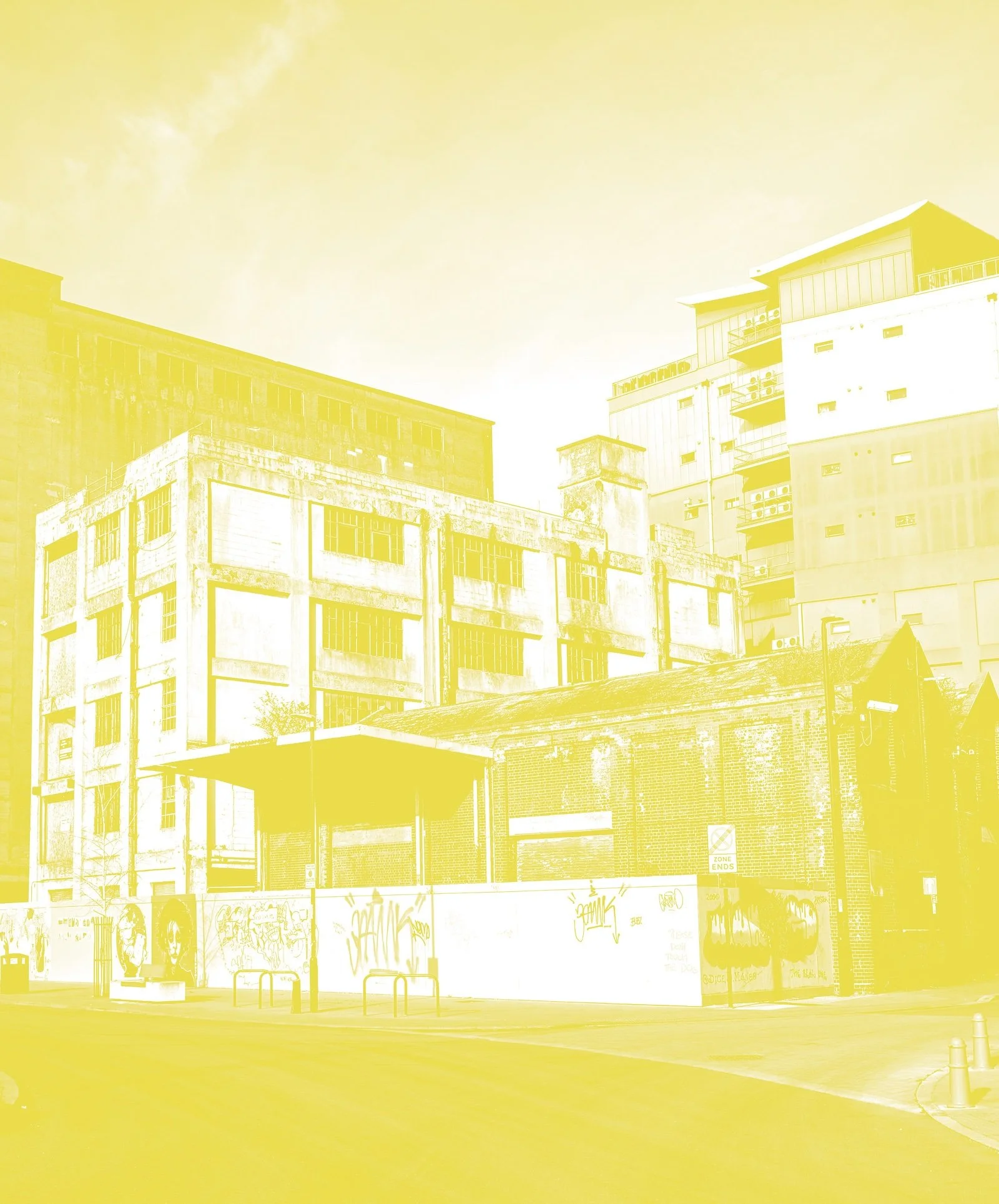We are pleased to announce the launch of DON’T WASTE BUILDINGS, a campaign group, movement, passion project, voluntary side-hustle (call it what you will) for which Abyss’ Managing Director, Richard Nelson, serves as co-chair, alongside two other co-chairs, Will Hurst (Managing Editor, Architect’s Journal) and Leanne Tritton (Founder, ING Media).
The group officially went public on LinkedIn on Friday, 5 April 2024, and has quickly amassed a couple hundred online members/followers.
‘Embodied Carbon’ is the 64 million-tonne CO₂ elephant in the room of the built environment sector and there is widespread agreement that it needs to be swiftly addressed or the UK will not meet its legal carbon reduction obligations by 2050. Yet, when it comes to regulation, the government has been dragging its heels, adopting a ‘do-nothing’ approach that has sewn confusion and stifled investment.
Don’t Waste Buildings is a group of frustrated, but proactive and optimistic, individuals from across the industry (finance, investment, architecture, property development, engineering, politics, NGO’s) making the case for the next government to introduce policies which will tackle embodied carbon by reducing the UK’s mountain of demolition and construction waste.
As a group, Don’t Waste Buildings meets regularly and collates and shares the many excellent reports and case studies that demonstrate the multiple environmental, social, and economic benefits of reusing existing buildings. Incentivising this common-sense approach will not only conserve resources, it will give the industry clarity, level-up investment across the country (especially for SME’s), super-charge the transition to a green economy, and bring unloved buildings back to use to benefit their local communities.
SIX WAYS DON'T WASTE BUILDINGS WILL HELP ACHIEVE THIS
We will explore and recommend a range of potential policies and financial incentives that will drive the reuse of existing buildings and reduce embodied carbon. These should promote clarity and avoid adding to the planning burden.
We will share information, collate reports, and record evidence and case studies from across the built environment sector to demonstrate best practice.
We will meet with politicians and policymakers to urge them to support policy change which should be included in their first term of government.
We will demonstrate the case for re-purposing existing commercial buildings and empty housing as high-quality homes. We face a housing crisis as well as a climate crisis yet, due to the environmental impact of newbuild, current government housebuilding targets would see England use up the entirety of its 1.5C carbon budget on housing alone.
We will work with other organisations in this area, demonstrating how our aims are linked and complementary. There is a groundswell of support across the entire property and built environment sector for this type of action.
We will engage with communities at a grassroots level to help them amplify the Don't Waste Buildings message locally.
A more detailed explanation of the group can be found in The Hymn Sheet, so nick-named to demonstrate to policy makers that the majority of the built environment is singing the same tune, countering previous government criticisms that we are fragmented in our views.
We will be using the LinkedIn group as a key resource for sharing relevant articles and information.
In fact, out Tax and Financial Incentives Team has already put out a document entitled ‘Financial Incentives to Promote Reuse of Existing Buildings’, providing an incredibly valuable guide to the current incentives, their limitations, and what we think could be done to refocus them to address embodied carbon more effectively.
Don’t Waste Buildings was originally started by Will Hurst (Managing Editor, Architect’s Journal), Richard Nelson (Chair, IoD Property and Built Environment Group and Managing Director, Abyss Global) and Leanne Tritton (Founder, ING Media, and Chair, The London Society). The group has quickly grown to over 80 people.
If you read the ‘hymn sheet’ and feel that Don’t Waste Buildings is a group that you can contribute to, please follow the group, share our message, or get in contact for further information. We also welcome further case studies on how a building that Wasn’t Wasted has improved your community.

